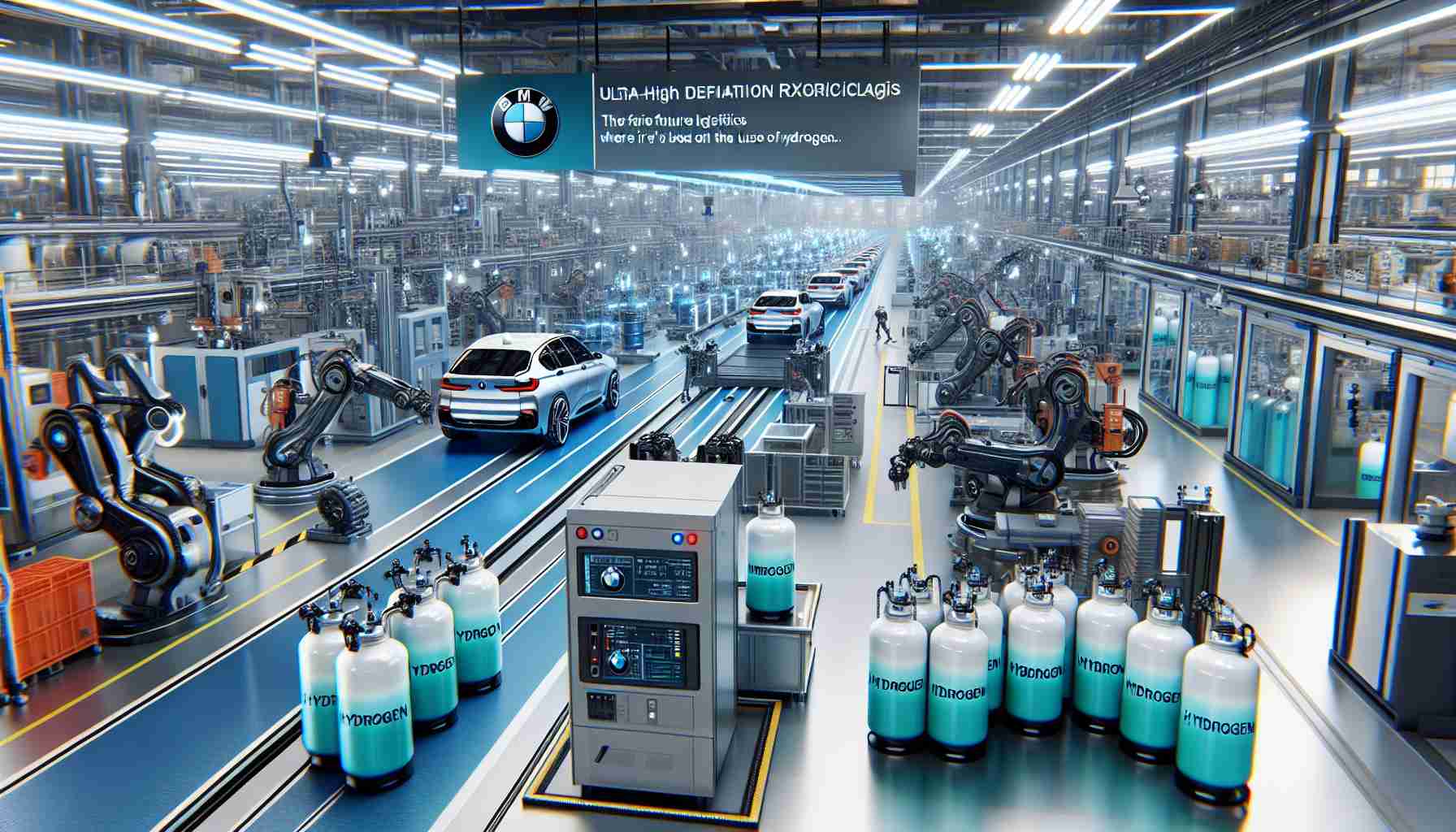The BMW Group is set to pioneer hydrogen technology in its Regensburg production facility, with plans to incorporate hydrogen-powered vehicles into its logistics operations by 2026. These innovative tractors and forklifts will handle all logistical tasks, ensuring efficient delivery of materials across various production stages, including the press shop, body shop, and assembly lines.
This strategic move is part of BMW’s broader iFACTORY initiative, which focuses on creating a digitally advanced and eco-friendly manufacturing environment. As highlighted by the facility’s plant manager, the transition from electric to hydrogen fuel promises enhanced sustainability and improved operational efficiency.
One of the main attractions of hydrogen logistics is the rapid refuelling capability, which closely resembles conventional refuelling times. This system is also more compact compared to traditional battery replacements, which currently require significant manual intervention and time.
To facilitate this transformation, a comprehensive hydrogen infrastructure will be established at the Regensburg site, featuring a 2-kilometre pipeline network and six strategically located refuelling stations. Once implemented, the plant is projected to utilize around 150 tonnes of hydrogen annually.
With a current fleet of 230 electric vehicles, BMW aims to completely transition to hydrogen logistics by 2030, setting the benchmark for sustainable automotive manufacturing. The move underscores the company’s commitment to innovation and environmental responsibility.
Innovative Strategies for Sustainable Logistics: Tips and Facts
As the automotive industry embraces sustainable practices, BMW’s transition to hydrogen-powered logistics offers a glimpse into the future of manufacturing. Here are some tips, life hacks, and interesting facts that readers can consider in relation to this pioneering initiative.
1. Understand the Advantages of Hydrogen Fuel
Hydrogen fuel is gaining popularity for its rapid refuelling capability, which allows vehicles to be back on the road much faster than electric vehicles that require lengthy charging times. This is particularly beneficial for logistics operations, where downtime can impact productivity.
2. Explore the Future of Hydrogen Infrastructure
BMW’s plan to create a 2-kilometre pipeline and multiple refueling stations is a significant step towards establishing a robust hydrogen infrastructure. Cities and companies looking to adopt similar systems should consider the benefits of developing such infrastructure to support their logistics and transportation needs.
3. Consider the Benefits of Digitally Advanced Factories
The iFACTORY initiative emphasizes a digital and eco-friendly manufacturing environment. Companies can benefit from incorporating smart technologies, such as automation and data analytics, to enhance operational efficiency and reduce waste.
4. Sustainability Beyond Transportation
While hydrogen is a crucial part of logistics, companies should also look into sustainable practices across their entire supply chain. This can include sourcing materials responsibly, optimizing routes for fuel efficiency, and utilizing renewable energy sources.
5. Stay Informed on State-of-the-Art Innovations
The automotive industry is rapidly evolving. Staying informed about innovations such as hydrogen fuel cells can prepare businesses for changes in technology and market demands. Following companies like BMW can provide insights into upcoming trends.
Interesting Fact: The projected use of 150 tonnes of hydrogen annually at BMW’s Regensburg site illustrates the scale at which companies can operate sustainably. Hydrogen is lauded as a clean alternative, producing only water vapor as a byproduct when consumed in fuel cells.
6. Networking with Industry Leaders
Connecting with industry innovators through workshops, conferences, or webinars can present new ideas for sustainable practices. Networking can also lead to partnerships that further leverage technology and sustainability.
For more insights on sustainable manufacturing and logistics advancements, visit BMW Group for updates and developments in the automotive sector.
In conclusion, as hydrogen technology strides forward, following the footsteps of innovative companies like BMW can inspire businesses in various sectors to adopt sustainable practices that not only enhance efficiency but also contribute to environmental preservation.

